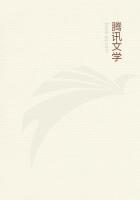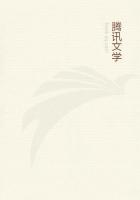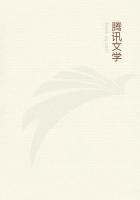When I said I had tried hard to believe that I was at least the literary descendant of Sir James Howels, he corrected me gently with "James Howel," and took down a volume of the 'Familiar Letters' from the shelves behind him to prove me wrong. This was always his habit, as I found afterwards when he quoted anything from a book he liked to get it and read the passage over, as if he tasted a kind of hoarded sweetness in the words. It visibly vexed him if they showed him in the least mistaken;but "The love he bore to learning was at fault"for this foible, and that other of setting people right if he thought them wrong. I could not assert myself against his version of Howels's name, for my edition of his letters was far away in Ohio, and I was obliged to own that the name was spelt in several different ways in it.
He perceived, no doubt, why I had chosen the form liked my own, with the title which the pleasant old turncoat ought to have had from the many masters he served according to their many minds, but never had except from that erring edition. He did not afflict me for it, though; probably it amused him too much; he asked me about the West, and when he found that I was as proud of the West as I was of Wales, he seemed even better pleased, and said he had always fancied that human nature was laid out on rather a larger scale there than in the East, but he had seen very little of the West. In my heart I did not think this then, and I do not think it now; human nature has had more ground to spread over in the West; that is all; but "it was not for me to bandy words with my sovereign." He said he liked to hear of the differences between the different sections, for what we had most to fear in our country was a wearisome sameness of type.
He did not say now, or at any other time during the many years I knew him, any of those slighting things of the West which I had so often to suffer from Eastern people, but suffered me to praise it all I would. He asked me what way I had taken in coming to New England, and when I told him, and began to rave of the beauty and quaintness of French Canada, and to pour out my joy in Quebec, he said, with a smile that had now lost all its frost, Yes, Quebec was a bit of the seventeenth century; it was in many ways more French than France, and its people spoke the language of Voltaire, with the accent of Voltaire's time.
I do not remember what else he talked of, though once I remembered it with what I believed an ineffaceable distinctness. I set nothing of it down at the time; I was too busy with the letters I was writing for a Cincinnati paper; and I was severely bent upon keeping all personalities out of them. This was very well, but I could wish now that I had transgressed at least so far as to report some of the things that Lowell said; for the paper did not print my letters, and it would have been perfectly safe, and very useful for the present purpose. But perhaps he did not say anything very memorable; to do that you must have something positive in your listener; and I was the mere response, the hollow echo, that youth must be in like circumstances. I was all the time afraid of wearing my welcome out, and I hurried to go when I would so gladly have staid. I do not remember where I meant to go, or why he should have undertaken to show me the way across-lots, but this was what he did; and when we came to a fence, which I clambered gracelessly over, he put his hands on the top, and tried to take it at a bound. He tried twice, and then laughed at his failure, but not with any great pleasure, and he was not content till a third trial carried him across. Then he said, "I commonly do that the first time," as if it were a frequent habit with him, while I remained discreetly silent, and for that moment at least felt myself the elder of the man who had so much of the boy in him. He had, indeed, much of the boy in him to the last, and he parted with each hour of his youth reluctantly, pathetically.
VIII.
We walked across what must have been Jarvis Field to what must have been North Avenue, and there he left me. But before he let me go he held my hand while he could say that he wished me to dine with him; only, he was not in his own house, and he would ask me to dine with him at the Parker House in Boston, and would send me word of the time later.
I suppose I may have spent part of the intervening time in viewing the wonders of Boston, and visiting the historic scenes and places in it and about it. I certainly went over to Charleston, and ascended Bunker Hill monument, and explored the navy-yard, where the immemorial man-of-war begun in Jackson's time was then silently stretching itself under its long shed in a poetic arrest, as if the failure of the appropriation for its completion had been some kind of enchantment. In Boston, I early presented my letter of credit to the publisher it was drawn upon, not that I needed money at the moment, but from a young eagerness to see if it would be honored; and a literary attache of the house kindly went about with me, and showed me the life of the city. A great city it seemed to me then, and a seething vortex of business as well as a whirl of gaiety, as I saw it in Washington Street, and in a promenade concert at Copeland's restaurant in Tremont Row. Probably I brought some idealizing force to bear upon it, for I was not all so strange to the world as I must seem; perhaps I accounted for quality as well as quantity in my impressions of the New England metropolis, and aggrandized it in the ratio of its literary importance. It seemed to me old, even after Quebec, and very likely I credited the actual town with all the dead and gone Bostonians in my sentimental census. If I did not, it was no fault of my cicerone, who thought even more of the city he showed me than Idid. I do not know now who he was, and I never saw him after I came to live there, with any certainty that it was he, though I was often tormented with the vision of a spectacled face like his, but not like enough to warrant me in addressing him.















